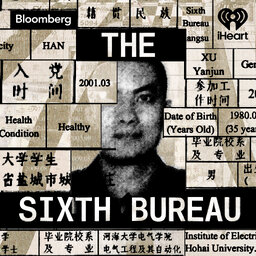CLASSIC: Is the Palace of Versailles haunted?
When Louis XIV expanded his father's old hunting pavilion he created one of the greatest achievements in French 17th century art -- a massive, opulent compound that became the seat of high society and French government. In the modern day, the Palace of Versailles remains an enormously popular tourist attraction and, according to some, a hotspot for for paranormal activity, including ghosts and time travel.
In 1 playlist(s)
Stuff They Don't Want You To Know
From UFOs to psychic powers and government conspiracies, history is riddled with unexplained events.…Social links
Follow podcast
Recent clips

Introducing: The Sixth Bureau
00:58

What is AI Psychosis?
1:23:50

Listener Mail: Lasers, Barack Obama on Aliens, and More
1:00:09
 Stuff They Don't Want You To Know
Stuff They Don't Want You To Know